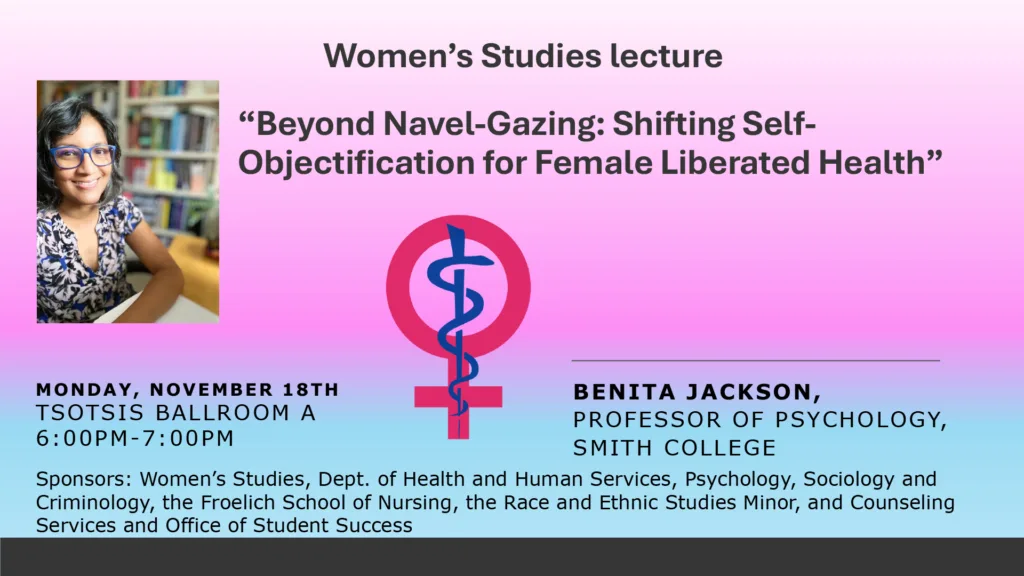Beyond Navel-Gazing: Shifting Self-Objectification for Female Liberated Health

In male-dominated societies the more a female body conforms with a narrow and mostly unattainable set of beauty standards, the more it is valued. Sometimes this evaluation is said to be a form of celebration, respect, or reverence. Other times, females are characterized as shallow for such ‘vanity’ while the social forces that coax or force intense body-focus are made invisible. Though manifested in culturally-particular ways, these processes are noted across the globe, with grave consequences.
When girls and women internalize such a view as the primary one of their physical selves, it is the process of self-objectification. This seeing one’s body primarily from a third-person perspective has been linked to a range of challenges on the individual level, from body dysmorphia to depression to eating disorders. On the collective level, when cognitive resources are directed toward self-objectification, they are directed away from other things. Chillingly, data show that greater self-objectification actually causes less motivation to engage in wider social change. This has been termed by Calgero and colleagues as the phenomenon of “objects don’t object.”
Though there is modest understanding that these outcomes may be a manifestation of structural sexism, behavioral medicine has largely not considered let alone integrated feminist perspectives with regard to a wider range of health behaviors. For example, typically health behaviors that compromise daily experiences have not been understood through the lens of self-objectification such as less physical activity, fewer mutually pleasurable sexual experiences, lower contraceptive use, and greater substance use. If well-being is both a key marker of true liberation and shaped by health behaviors, an important test is if self-objectification is a key social determinant shaping females’ health.
In this talk, I present new meta-analytic research of 15,000+ participants from 53 samples across more than a quarter century (mostly in the United States, based on available data) consistent with the novel idea that self-objectification is also a key final common pathway preceding a host of seemingly unrelated health behavior outcomes.
The hopeful news is that this knowledge that self-objectification is linked to health behaviors allows individuals and those working to change society broadly to more strategically mobilize resources supporting those living in a female body. Indeed, there are multiple possible interventions for breaking this link, including reducing exposures that increase self-objectification and increasing opportunities for increasing agency and internal felt sense in one’s body.
Furthermore, by resisting self-objectification and visioning possibilities for right-use of cognitive capacity, I speculate how and offer some potential next steps for reclaiming cognitive resources toward more enjoyment and effective problem-solving, specifically applying them to more life-sustaining endeavors for all people and the planet. The program will be co-sponsored with the departments of Health and Human Services, Psychology, Sociology and Criminology, the Froelich School of Nursing, the Race and Ethnic Studies Minor, and Counseling Services and Student Success.
This lecture is free and open to the public.

